- Home
- Jodi Picoult
House Rules: A Novel Page 3
House Rules: A Novel Read online
Page 3
Jacob
I may be autistic, but I can’t tell you what day of the week your mother’s thirty-second birthday fell on. I can’t do logarithms in my head. I can’t look at a patch of sod and tell you it has 6,446 individual blades of grass. On the other hand, I could tell you anything you ever wanted to know about lightning, polymerase chain reactions, famous movie quotes, and Lower Cretaceous sauropods. I memorized the periodic table without even trying; I taught myself how to read Middle Egyptian; and I helped my calculus teacher fix his computer. I could talk forever about friction ridge detail in fingerprint analysis and whether said analysis is an art or a science. (For example, DNA of identical twins is identical; we know that based on scientific analysis. But the fingerprints of identical twins differ in their Galton details—which evidence would you rather have if you were a prosecutor? But I digress.)
I suppose these talents would make me a hit at a cocktail party if (a) I drank, which I don’t, or (b) I had any friends to invite me to a party, cocktail or not. My mother has explained it to me this way: imagine what it’s like to have someone with an intense stare come up to you and start talking about medium-velocity-impact blood spatter patterns caused by objects moving between 1.5 and 7.5 meters per second and how they differ from high-velocity-impact spatter from gunshots or explosives. Or even worse, imagine being the person talking, and not getting the hint when the victim of your conversation is desperately trying to escape.
I was diagnosed with Asperger’s syndrome long before it became the mental health disorder du jour, overused by parents to describe their bratty kids so that people think they’re supergeniuses instead of simply antisocial. To be honest, most kids in my school know what Asperger’s is now, thanks to some candidate on America’s Next Top Model. So many people have mentioned her to me that they must think we’re related. As for myself, I try not to say the word out loud. Asperger’s. I mean, doesn’t it sound like a Grade Z cut of meat? Donkey on the barbecue?
I live with my mother and my brother, Theo. The fact that we emerged from the same gene pool is mind-boggling to me, because we could not be more different from each other if we actively attempted it. We look like polar opposites—his hair is fine and so blond it could pass for silver; mine is dark and gets bushy if I do not have it cut religiously every three weeks (actually, part of the reason I get it cut every three weeks is that three is a good, safe number, unlike four, for example, and the only way I can handle someone touching my hair is if I know it’s coming in advance). Theo is always caught up in what other people think of him, while I already know what people think of me—that I’m the weird kid who stands too close and doesn’t shut up. Theo listens to rap almost exclusively, which gives me a headache. He skateboards as if the wheels are attached to the bottoms of his feet, and I do mean that as a compliment, since I can barely walk and chew gum simultaneously. He puts up with a lot, I suppose. I get upset if plans don’t work out or if something in my schedule changes, and sometimes I just can’t control what happens. I go all Hulk—screaming, swearing, hitting things. I haven’t ever hit Theo, but I’ve thrown things at him and have wrecked some of his things, most notably a guitar that my mother then made me pay for in increments for the next three years of my life. Theo also is the one who suffers the brunt of my honesty:
CASE IN POINT 1
Theo walks into the kitchen wearing jeans so low that his underwear is showing, an oversize sweatshirt, and some weird medal around his neck.
Theo: ’Sup?
Me: Yo, homey, maybe you didn’t get the memo, but we live in suburbia, not the ’hood. Is it Tupac Appreciation Day or something?
I tell my mother we have nothing in common, but my mother insists that will change. I think she’s crazy.
I don’t have any friends. The bullying started in kindergarten, when I got my glasses. The teacher made a popular boy wear fake glasses so I’d have someone to connect with, but as it turned out, he didn’t really want to talk about whether archaeopteryx should be categorized as a prehistoric bird or a dinosaur. Needless to say, that friendship lasted less than a day. By now, I have gotten used to kids telling me to leave, to sit somewhere else. I never get called on the weekends. I just don’t get the social hints that other people do. So if I’m talking to someone in class and he says, “Man, is it one o’clock already?” I look at the clock and tell him that yes, it is one o’clock already, when in reality he is trying to find a polite way to get away from me. I don’t understand why people never say what they mean. It’s like immigrants who come to a country and learn the language but are completely baffled by idioms. (Seriously, how could anyone who isn’t a native English speaker “get the picture,” so to speak, and not assume it has something to do with a photo or a painting?) For me, being in social situations—whether that’s school, or Thanksgiving dinner, or the line at the movies—is like moving to Lithuania when you haven’t studied Lithuanian. If someone asks me what I’m doing for the weekend, I can’t respond as easily as Theo would, for example. I’ll stumble over how much information is too much, and so instead of giving a blow-by-blow description of my future plans, I’ll rely on someone else’s words. Doing my best De Niro Taxi Driver impression, I’ll say, “You talkin’ to me?” Mind you, it’s not just my peers that I misunderstand. Once, my health teacher had to take a phone call in the main office, and she told the class, “Don’t move—don’t even breathe.” Normal kids ignored the statement; a few Goody Two-shoes worked quietly at their desks. And me? I sat like a statue with my lungs on fire, until I was on the verge of passing out.
I used to have a friend. Her name was Alexa, and she moved away in seventh grade. After that, I decided to treat school like an anthropological study. I tried to cultivate an interest in topics that normal kids talked about. But it was so boring:
CASE IN POINT 2
Girl: Hey, Jacob, isn’t this the coolest MP3 player?
Me: It was probably made by Chinese kids.
Girl: You want a sip of my Slushee?
Me: Sharing drinks can give you mono. So can kissing.
Girl: I’m going to go sit somewhere else …
Can you blame me for trying to jazz up conversations with my peers a little, by talking about topics like Dr. Henry Lee’s take on the Laci Peterson murder? Eventually I gave up engaging in mundane chats; following a discussion about who was going out with whom was as hard for me as cataloging the mating rituals of a nomadic tribe in Papua New Guinea. My mother says sometimes I don’t even try. I say I try all the time, and I keep getting rejected. I’m not even sad about it, really. Why would I want to be friends with kids who are nasty to people like me, anyway?
There are some things I really can’t stand.
1. The sound of paper being crumpled. I can’t tell you why, but it makes me feel like someone’s doing that to all my internal organs.
2. Too much noise or flashing lights.
3. Having plans change.
4. Missing CrimeBusters, which is on the USA Network at 4:30 every day, thanks to the wonders of syndication. Even though I know all 114 of the episodes by heart, watching them daily is as important to me as taking insulin would be to a diabetic. My whole day is planned around it, and if I can’t have my fix, I get shaky.
5. When my mother puts my clothes away. I keep them in rainbow order, ROYGBIV, and the colors can’t touch. She does her best, but the last time, she completely forgot about indigo.
6. If someone else takes a bite of my food, I have to cut off the part that his/her saliva has touched before I can eat any more of it.
7. Loose hair. It freaks me out, which is why mine is military short.
8. Being touched by someone I don’t know.
9. Foods with membranes, like custards; or foods that explode in your mouth, like peas.
10. Even numbers.
11. When people call me retarded, which I am not.
12. The color orange. It means danger, and there’s no rhyme for it in English, which makes it suspici
ous. (Theo wants to know why I can tolerate things that are silver, then, but I won’t even rise to the argument.)
I have spent much of my eighteen years learning how to exist in a world that is occasionally orange, chaotic, and too loud. In between classes, for example, I wear headphones. I used to wear this great pair that made me look like an air traffic controller, but Theo said everyone made fun of me when they saw me in the halls, so my mother convinced me to use earbuds instead. I hardly ever go to the cafeteria, because (a) there’s no one for me to sit with and (b) all those conversations crossing each other feel like knives on my skin. Instead, I hang out in the teachers’ room, where if I happen to mention that Pythagoras did not really discover the Pythagorean theorem (the Babylonians used it thousands of years before Pythagoras was even a seductive gleam in his Grecian parents’ eyes), they do not look at me as if I have grown a second head. If things get really bad, pressure helps—like lying under a pile of laundry or a weighted blanket (a blanket with little poly pellets inside that make it heavier)—because the deep touch sensory stimulation calms me down. One of my therapists, a Skinner aficionado, got me to relax to Bob Marley songs. When I get upset, I repeat words over and over and talk in a flat voice. I close my eyes and ask myself, What would Dr. Henry Lee do?
I don’t get into trouble because rules are what keep me sane. Rules mean that the day is going to go exactly the way I am predicting it to be. I do what I’m told; I just wish everyone else would do it, too.
We have rules in our house:
1. Clean up your own messes.
2. Tell the truth.
3. Brush your teeth twice a day.
4. Don’t be late for school.
5. Take care of your brother; he’s the only one you’ve got.
The majority of these rules come naturally to me—well, except for brushing my teeth, which I hate doing, and taking care of Theo. Let’s just say my interpretation of rule number 5 doesn’t always synchronize with Theo’s interpretation. Take today, for example. I included him in a starring role in my crime scene, and he got furious. He was cast as the perpetrator … how could he not see that as the highest form of flattery?
* * *
My psychiatrist, Dr. Moon Murano, often asks me to rate anxiety-producing situations on a scale of one to ten.
CASE IN POINT 3
Me: My mom went out to the bank and said she was going to be back in fifteen minutes and when it got to seventeen minutes, I started to panic. And then when I called her, she didn’t pick up on her cell, and I was sure she was lying dead in a ditch somewhere.
Dr. Moon: On a scale of one to ten, how did that make you feel?
Me: A nine.
(Note: It was really a ten, but that’s an even number, and saying it out loud would make my anxiety level blow off the chart.)
Dr. Moon: Can you think of a solution that might have worked better than calling 911?
Me (doing my best Cher from Moonstruck impression): Snap out of it!
I rate my days, too, although I haven’t told this to Dr. Moon yet. High numbers are good days; low numbers are bad days. And today is a one, between my fight with Theo and then the absence of the Free Sample Lady at the grocery store. (In my defense, I have worked out an algorithm to predict what she’s going to serve, and maybe I wouldn’t have been upset if it was the first Saturday of the month, when she hands out vegetarian items. But today was a dessert day, for God’s sake.) I have been in my room since we got home. I bury myself under my covers, and put a weighted blanket on top of that. I cue “I Shot the Sheriff” on my iPod on repeat and listen to that one song until 4:30, when it is time to watch CrimeBusters and I have to go into the living room, where the TV is.
The episode is number 82, one of my top five ever. It involves a case where one of the CSI investigators, Rhianna, doesn’t show up for work. It turns out she is taken hostage by a man racked with grief over his wife’s recent death. Rhianna leaves behind clues for the rest of the team to solve, to lead them to where she is being kept.
Naturally, I figure out the conclusion long before the rest of the CSI team does.
The reason I like the episode so much is that they actually got something wrong. Rhianna gets dragged to a diner by her kidnapper and leaves a coupon for her favorite clothing store underneath her finished plate. Her colleagues find it, and need to prove it’s actually hers. They process it for prints, using a small-particle reagent followed by ninhydrin, when in reality, you’re supposed to use ninhydrin first. It reacts to the amino acid and then is followed by the small-particle reagent, which reacts with fats. If you used the small-particle reagent first, like they did in the episode, it would ruin the porous surface for the ninhydrin procedure. When I spotted the error, I wrote to the producers of CrimeBusters. They sent me back a letter and an officially licensed T-shirt. The T-shirt doesn’t fit me anymore, but I still keep it in my drawer.
After watching the episode, my day definitely improves from a one to a three.
“Hey,” my mother says, poking her head into the living room. “How are you doing?”
“Okay,” I reply.
She sits down beside me on the couch. Our legs are touching. She is the only person I can stand having close to me. If it were anyone else, I would have moved away a few inches by now. “So, Jacob,” she says, “I just want to point out that you did in fact survive the day without the free food sample.”
It’s times like this I am glad I don’t look people in the eye. If I did, surely they would die on the spot from the contempt shooting out of mine. Of course I survived. But at what cost?
“Teachable moment,” my mother explains, and she pats my hand. “I’m just saying.”
“Frankly my dear,” I murmur, “I don’t give a damn.”
My mother sighs. “Dinner at six, Rhett,” she says, even though it’s always at six, and even though my name is Jacob.
At different times, the media have posthumously diagnosed certain famous people with Asperger’s. Here is just a sampling:
1. Wolfgang Amadeus Mozart
2. Albert Einstein
3. Andy Warhol
4. Jane Austen
5. Thomas Jefferson
I am 99 percent sure not a single one of them had a meltdown in a grocery store and wound up breaking a whole shelf of relish and pickle jars.
Dinner proves to be a painful affair. My mother seems driven to start a conversation, although neither Theo nor I is inclined to hold up the other end of it. She has just gotten another packet of letters from the Burlington Free Press, and sometimes she reads them out loud at dinner and we make up politically incorrect responses that my mother would never in a million years write in her advice column.
CASE IN POINT 4
Dear Auntie Em,
My mother-in-law insists on cooking roast beef every time my husband and I come to visit, even though she knows that I am a lifelong vegetarian. What should I do next time it happens?
Steamed in South Royalton
Dear Steamed,
Turnip your nose at her and walk away.
Sometimes the questions she gets are really sad, like the woman whose husband had left her and who didn’t know how to tell her kids. Or the mom dying of breast cancer who wrote a letter for her baby daughter to read when she grew up, about how she wished she could have been there for her daughter’s high school graduation, her engagement, her first child. Mostly, though, the questions come from a bunch of idiots who made bad choices. How do I get my husband back, now that I realize I shouldn’t have cheated on him? Try being faithful, lady. What’s the best way to win back a friend you’ve hurt with a nasty remark? Don’t say it in the first place. I swear, sometimes I can’t believe my mother gets paid to state the obvious.
Tonight she holds up a note from a teenage girl. I can tell, because the ink of the pen is purple and because the i in Auntie Em has a heart over it where the dot should be. “Dear Auntie Em,” she reads, and just like always, I picture a little old lady wea
ring a bun and sensible shoes, not my own mother. “I like a guy who already has a girlfriend. I know he likes me cuz—God, don’t they teach you how to spell these days?”
“No,” I answer. “They teach us to use spell-check.”
Theo looks up from his plate long enough to grunt in the direction of the grape juice.
“I know he likes me because,” my mother edits, “he walks me home from school and we talk for hours on the phone and yesterday I couldn’t take it anymore and I kissed him and he kissed me back … Oh, please, someone get this girl a comma.” Then she frowns at the loose-leaf paper. “He says we can’t go out but we can be friends with benefits. Do you think I should say yes? Sincerely, Burlington Buddy.” My mother glances at me. “Don’t all friends have benefits?”
I stare at her blankly.
“Theo?” she asks.
“It’s a saying,” he mutters.
“A saying that means what, exactly?”

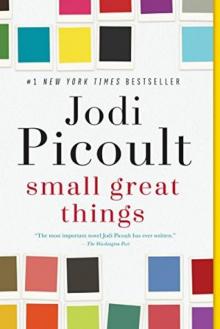 Small Great Things
Small Great Things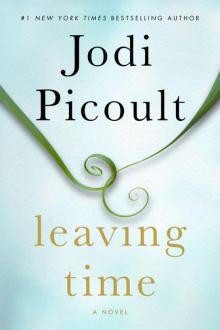 Leaving Time
Leaving Time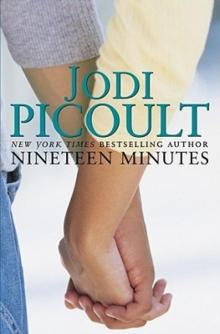 Nineteen Minutes
Nineteen Minutes Larger Than Life
Larger Than Life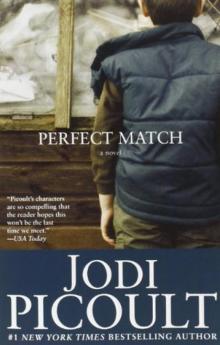 Perfect Match
Perfect Match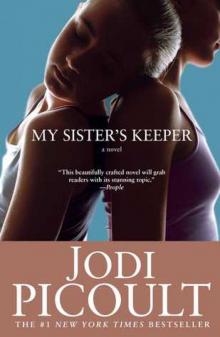 My Sister's Keeper
My Sister's Keeper The Pact
The Pact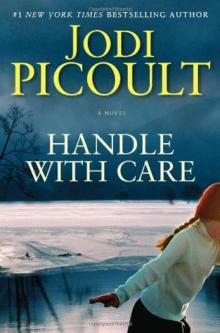 Handle With Care
Handle With Care Songs of the Humpback Whale
Songs of the Humpback Whale Mermaid
Mermaid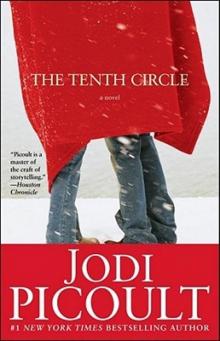 The Tenth Circle
The Tenth Circle The Color War
The Color War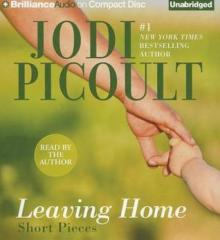 Leaving Home: Short Pieces
Leaving Home: Short Pieces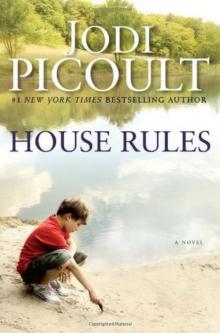 House Rules
House Rules Lone Wolf
Lone Wolf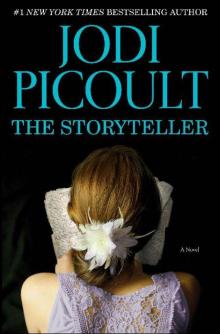 The Storyteller
The Storyteller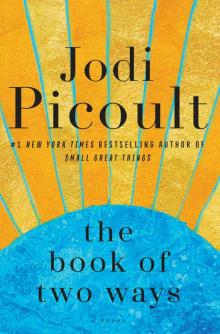 The Book of Two Ways
The Book of Two Ways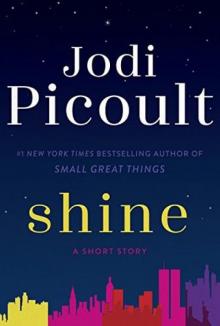 Shine
Shine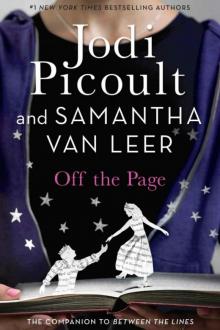 Off the Page
Off the Page Sing You Home
Sing You Home Second Glance: A Novel
Second Glance: A Novel Mercy
Mercy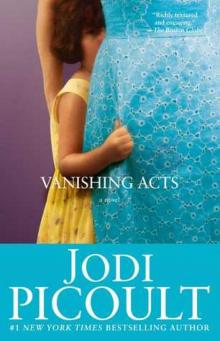 Vanishing Acts
Vanishing Acts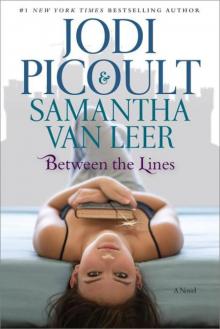 Between the Lines
Between the Lines Plain Truth
Plain Truth Salem Falls
Salem Falls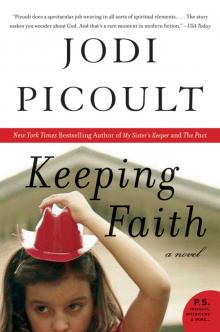 Keeping Faith
Keeping Faith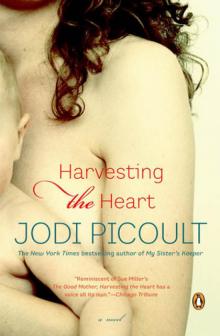 Harvesting the Heart
Harvesting the Heart Change of Heart
Change of Heart Where There's Smoke
Where There's Smoke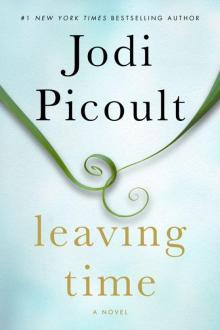 Leaving Time: A Novel
Leaving Time: A Novel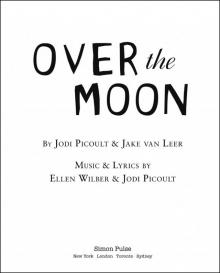 Over the Moon
Over the Moon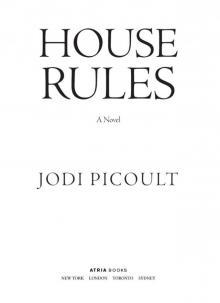 House Rules: A Novel
House Rules: A Novel The Jodi Picoult Collection #2
The Jodi Picoult Collection #2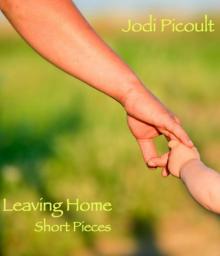 Leaving Home: Short Pieces (Kindle Single)
Leaving Home: Short Pieces (Kindle Single)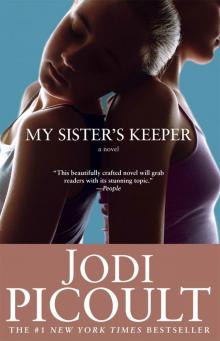 My Sister's Keeper: A Novel
My Sister's Keeper: A Novel![Mermaid [Kindle in Motion] (Kindle Single) Read online](http://i1.bookreadfree.com/i1/04/03/mermaid_kindle_in_motion_kindle_single_preview.jpg) Mermaid [Kindle in Motion] (Kindle Single)
Mermaid [Kindle in Motion] (Kindle Single)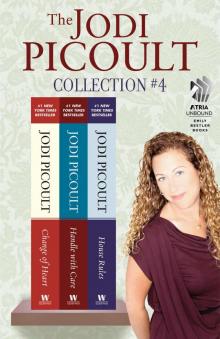 The Jodi Picoult Collection #4
The Jodi Picoult Collection #4 Sing You Home: A Novel
Sing You Home: A Novel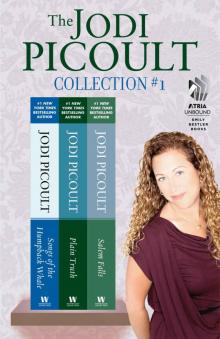 The Jodi Picoult Collection
The Jodi Picoult Collection Lone Wolf A Novel
Lone Wolf A Novel Second Glance
Second Glance Larger Than Life (Novella)
Larger Than Life (Novella)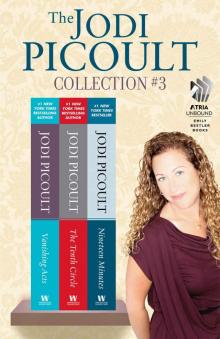 The Jodi Picoult Collection #3
The Jodi Picoult Collection #3